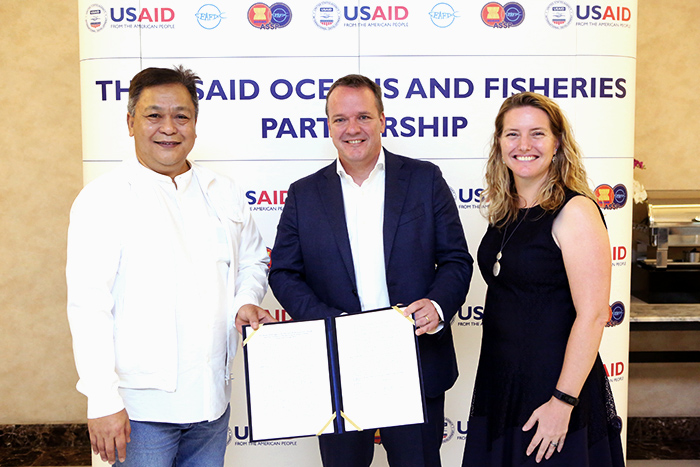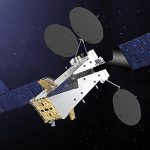By making use of enhanced communication technology, the partnership will advance catch documentation and traceability (CDT) to promote legal, reported and regulated fishing
 The United States Agency for International Development?s Oceans and Fisheries Partnership (USAID Oceans) and Inmarsat have announced a new partnership to help commercial fishing crews promote sustainable fishing in Southeast Asia.
The United States Agency for International Development?s Oceans and Fisheries Partnership (USAID Oceans) and Inmarsat have announced a new partnership to help commercial fishing crews promote sustainable fishing in Southeast Asia.
By making use of enhanced communication technology, the partnership will advance catch documentation and traceability (CDT) to promote legal, reported and regulated fishing. USAID Regional Development Mission for Asia?s Regional Environment Office Director, Angela Hogg, and Chief Sales Officer for Inmarsat Maritime, Gerbrand Schalkwijk attended a signing ceremony for the partnership.
?USAID Oceans is very pleased to be partnering with Inmarsat on developing solutions and services that will support sustainable fishing and, at the same time, improve the welfare and livelihood of those working at sea,? said Angela Hogg.
Through this partnership, USAID Oceans will leverage Inmarsat?s expertise to improve communications for fishing vessels in the region. Crew members on medium and large vessels will integrate existing monitoring systems and CDT data with Inmarsat?s Fleet One and IsatData Pro technology, a global two-way messaging service for tracking and monitoring ports and vessels. USAID Oceans will pilot this technology in Bitung, Indonesia, and Songkhla, Thailand, where the project has undertaken CDT system development and testing. Successful pilot tests demonstrating effective communications between vessels and ports will enable further CDT system development in the region.
In Indonesia, Inmarsat will equip fishing vessels from participating companies with onboard satellite systems for real-time electronic voice and data exchange while at sea, consistent with Indonesia?s Ministry of Marine Affairs and Fisheries reporting requirements. Enhanced connectivity will help reduce illegal fishing and support fishers to monitor and share fish stocks. This technology will help fishing fleets to locate fish faster, improve voyage planning and reduce operational costs. Better ship-to-shore communication will enable captains to instantly track weather forecasts, thereby ensuring safer sailing and quality of life at sea.
In Thailand, Inmarsat, in partnership with seafood producer, Thai Union, is providing a satellite communications to help crews maintain at-sea connectivity for quicker and easier digital catch reporting, communication and fleet management. Activities in Indonesia and Thailand will support expansion to other countries in the Asia-Pacific region to use similar systems.
?We believe that by bringing a new level of connectivity onboard, we can help combat illegal, unreported and unregulated fishing, ensure compliance, improve data transfer, quality and reliability, and enhance crew safety,? said Inmarsat?s Gerbrand Schalkwijk.












































































